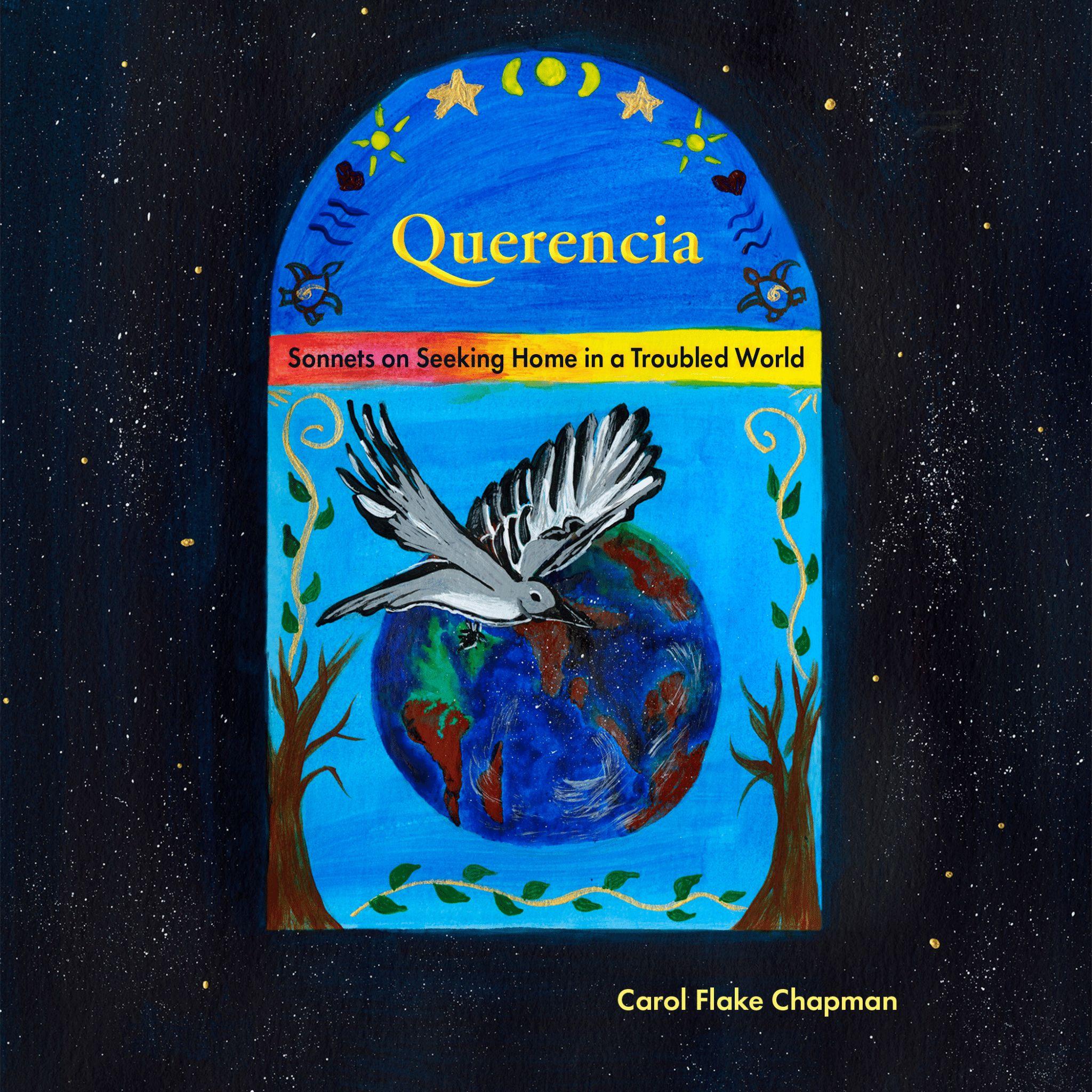
POETRY
Querencia: Sonnets on Seeking Home in a Troubled World
Carol Flake Chapman
2nd Tier Publishing
May 21, 2023
978-1-7350664-7-9; 107 pages
Texas writer Carol Flake Chapman's noteworthy new poetry collection, Querencia, brings fresh light to some challenging and vital questions about people's concepts of "home." Where is home, exactly? Must it be a specific place, or can it be anywhere that we feel safe and can hang onto a sense of belonging? Why do we eagerly (or angrily) leave home and then try to return after almost everything we remember has changed?
Chapman's book offers forty-nine poems and facing illustrations anchored around the theme "Seeking Home in a Troubled World." And she has put some courageous creativity into her decision to structure each poem as a fourteen-line unrhymed sonnet.
Many potential readers likely struggled through the sonnets of sixteenth- and seventeenth-century poets such as Edmund Spenser, John Donne, and John Milton in high school or college English classes. Chapman's sonnets, however, offer a clear, modern focus, with titles such as "The Influencer Who Fell to Earth" and "Bearing Witness to Falling Trees." She also uses almost no punctuation, relying instead on the rhythms of words within sentences to provide separation.
The first eight lines of her sonnet "Billionaires in Space" deliver a compelling example of her approachable writing style:
Billionaires in Space
I'm not sure what passes for a miracle these days
When the veil between heaven and earth is lifted
And billionaires aim to rocket into weightlessness
While burning off a small sliver of their fortunes
Leaving the rest of us craning our necks upward
As we are weighted down with our cares but
Hoping for a sign that all's right with the world
That is the only world we have at the moment
Her collection's title word querencia has several home-related meanings in Spanish, including "a favorite place." Oddly, the word evolved from a deadly sport: bullfighting. Querencia refers to a small area within the deadly ring where a bull temporarily senses safety, and it will defend it as its "home" turf once the next confrontations with the matador begin.
Most people likely would prefer to have a querencia that is much more permanent. But Chapman's sonnet, "Marking Time," presses deeper into that notion, first asking:
Is home the well-worn path
You follow every day by rote
As the dogs get older and older
And querying later, in the sonnet's concluding lines:
Is home then a habit not a choice
You make every day until the days
And weeks blur and run together
And you lose track of what it is
That brought you here long ago
And where it is you should be going
Ask millions of Americans where "home" is, and they will happily quote a simplistic nineteenth-century proverb: "Home is where the heart is." Most, of course, have physical houses, condos, or apartments outside their hearts and work hard to afford, maintain, and secure those shelters. Yet, no matter how much time, effort, and money are spent, physical homes can be lost in an instant.
Wars, wildfires, climate change, economic turmoil, and large-scale disasters such as typhoons and earthquakes leave millions of people homeless, with almost no belongings or financial resources to help them start over. How, where, and when do they find new dwellings that can last long enough to call "home"?
"The great paradox—and tragedy—of our time," Chapman writes in her book's introduction, "is that our deep longing for home and safety comes at a time when there is no safety." We must, she urges, remain willing to uproot quickly if necessary and "seek safety and belonging elsewhere."
Carol Flake Chapman started out as an academic, with a Ph.D in modern poetry and an esoteric dissertation on Wallace Stevens. She bailed out quickly in favor of journalism, and after a fling as a starving writer in New York became one of the founding editors of Vanity Fair. She has written for many notable newspapers and magazines, including the New Yorker, the New York Times, U.S. News & World Report, The New Republic, and the Boston Globe.
